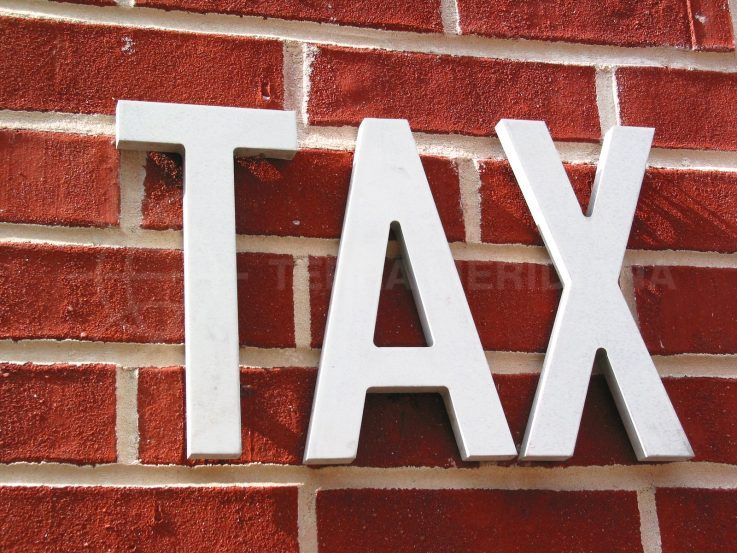
Property News
Bend It Like Beckham – The Beckham Tax Regime in Spain

Let’s talk about football and taxes, two of the big certainties in life. Say you’re a worker with a highly sought-after set of skills and an employer from Spain offers you a job that would require you to relocate here. The idea sounds appealing. After all, it’s sunny most of the year, there’s great beaches, good food, friendly people and a healthy pace of life. You might even have kids who could come, learn Spanish and enjoy the Spanish lifestyle along with you. But then you think about the tax complications and your head spins.
Luckily, you remember that apart from the 20 goals that David Beckham scored for Real Madrid he is also known for his time in Spain for a Spanish tax law directed at foreign workers, especially high-value, skilled workers, that became known as the Beckham Regime. It got that name because it came into effect the same year that David Beckham was recruited to play for Real Madrid F.C., in 2003.
The idea was that a more generous and simpler tax regime could be used to attract high value workers to Spain. Not surprisingly it was popular and got a lot of press. After a few years, however, footballers and sports stars were specifically excluded (sorry, Romeo, son of David) and there were a few other changes. But the core of it is still the same – and might be worth your time.
The basic motivation is that there are highly skilled workers in specific fields that will tend to be hired on contracts that are not indefinite, like footballers, business executives and certain IT jobs. These people can attract high bids and be tempted to move if they receive a great offer. Then, in a few years, they might move on (or might have settled in enough that they decide to stay). This is reflected in the fact that the special tax regime only lasts for 6 years and then the regular IRPF/PIT tax regime kicks in for the person.
If you decide to stick around longer, you are expected to convert to the regular tax regime.
How the Beckham Regime works and the advantages in practice
How it works is that if someone is hired in Spain, instead of paying taxes as a Spanish fiscal resident, they pay under the Special Expats Tax Regime (SETR, or RETD in Spanish). With the IRFP/PIT tax regime that all Spanish fiscal residents pay under, there is a progressive increase in the amount that you pay based upon your net income. For instance, if you earned €12,000, you would pay 24%, 30% on everything above €24,000, 37% at €35,000, and then rising to 45% at €60k, and finally 47% at €300k. By the way, those are Andalusia numbers, there are different tax rates in each autonomous community.
Anyway, if you apply to pay taxes under the SETR, as a non-Spanish fiscal resident, you instead pay a flat tax rate of 24% on all your income up to €600k. Income above €600k is taxed at a rate of 47%. In addition, and just as attractive, you only pay on Spanish income, and you do not pay tax on foreign assets – the dreaded Model 720.
All foreign income that is not employment income is not taxable in Spain. If you own a rental house – or rent your house back home while you work in Spain – you are not taxed on that income. If you have other income generating assets, you do not pay any taxes on those either. Worldwide employment income, you still must declare.
Finally, not only do you not have to pay taxes on your foreign assets – the wealth tax has been eliminated in Andalusia in any case, as of September 2022 – you do not have to fill out the dreaded Modelo 720, declaring all your worldwide assets.
Ok, but what are the drawbacks you ask? Yes, there are some.
Some disadvantages of the Beckham Regime
This tax status is only useful if you earn more than €50k-€60k. Before that, the progressive Spanish tax system will mean you pay less tax under the usual IRPF/PIT regime. The flat tax regime of the SETR also means that you are not allowed to declare deductions, as you could under IRPF/PIT. For instance, if you purchase a rental property in Spain, you cannot declare expenses on the property against its income. You also are not eligible for deductions for children or other dependents. Likewise other typical deductions are not elligible.
The other potential drawback is related to the possibility of double taxation. Spain has treaties with many countries against double taxation. What that means is, if you live in Spain but work for a British company, you only pay taxes in Spain. However, with the SETR regime, some countries have specifically excluded that from the Double Taxation Agreement. That is the case with the United Kingdom, for instance. If a substantial part of your income comes from the UK, that could negate the benefits of SETR.
Are you elligile for the Beckham Regime?
If you think that the Beckham Regime might be useful to you, you need to know whether you are eligible. The first thing is that you cannot have been a tax resident in Spain previously, within the last 10 years. You also need to apply within six months of arriving in Spain and you must be in Spain because of a work contract.
That is, either you have been hired by a Spanish company to relocate here, you have been transferred by your company to work in their Spanish operations, or you become the director of a company (without owning 25% or more of the company’s shares). Proving this can be a bit more complicated than you think. For instance, if you receive capital gains, dividends, or rental income in Spain prior to your arrival, this can nullify your eligibility, even if you meet other requirements. In other words, this requires an experienced professional to assess your eligibility and submit your application.
It’s also worth noting that the Spanish government has published a draft bill of the Start-Up Law to Parliament. This will include changes to make the Beckham Regime even more advantageous and open.
A new draft to the Beckham regime is in the pipeline
The draft bill is likely to take effect in January 2023. It will make several key changes*. For instance, it will reduce from 10 to 5 the number of years that must have passed since you were a Spanish tax resident. That will encourage the return of eligible workers and executives, who might have been deterred by the need to wait for ten years to be able to take advantage of the regime.
It will also specifically target so-called “digital nomads”, that is those who work remotely for a company that isn’t in Spain. Earlier limitations of 25% ownership on company executives will also be eliminated in the case of start-up companies. To attract highly skilled workers who have families, the regime will be extended to cover spouses, dependent minors and disabled children of someone who has relocated to Spain for work.
More could be done to improve the tax regime to make Spain attractive as a relocation destination, for instance including free-lancers, who are still not eligible. Likewise, there needs to be changes around the tax implications for the purchase of property in Spain by those covered under the Beckham Regime. But this is nonetheless an important step forward. With Andalusia eliminating the wealth tax and with all the wonderful benefits of living in the Costa del Sol (confession: I am biased), this could be another compelling argument for relocating here.
*Special thanks to Nuria and Guadalupe from Lener Group for their information on upcoming changes to the Beckham Law and confirming that this article was factually correct.
By Adam Neale | Property News | November 25th, 2022
Related Posts





